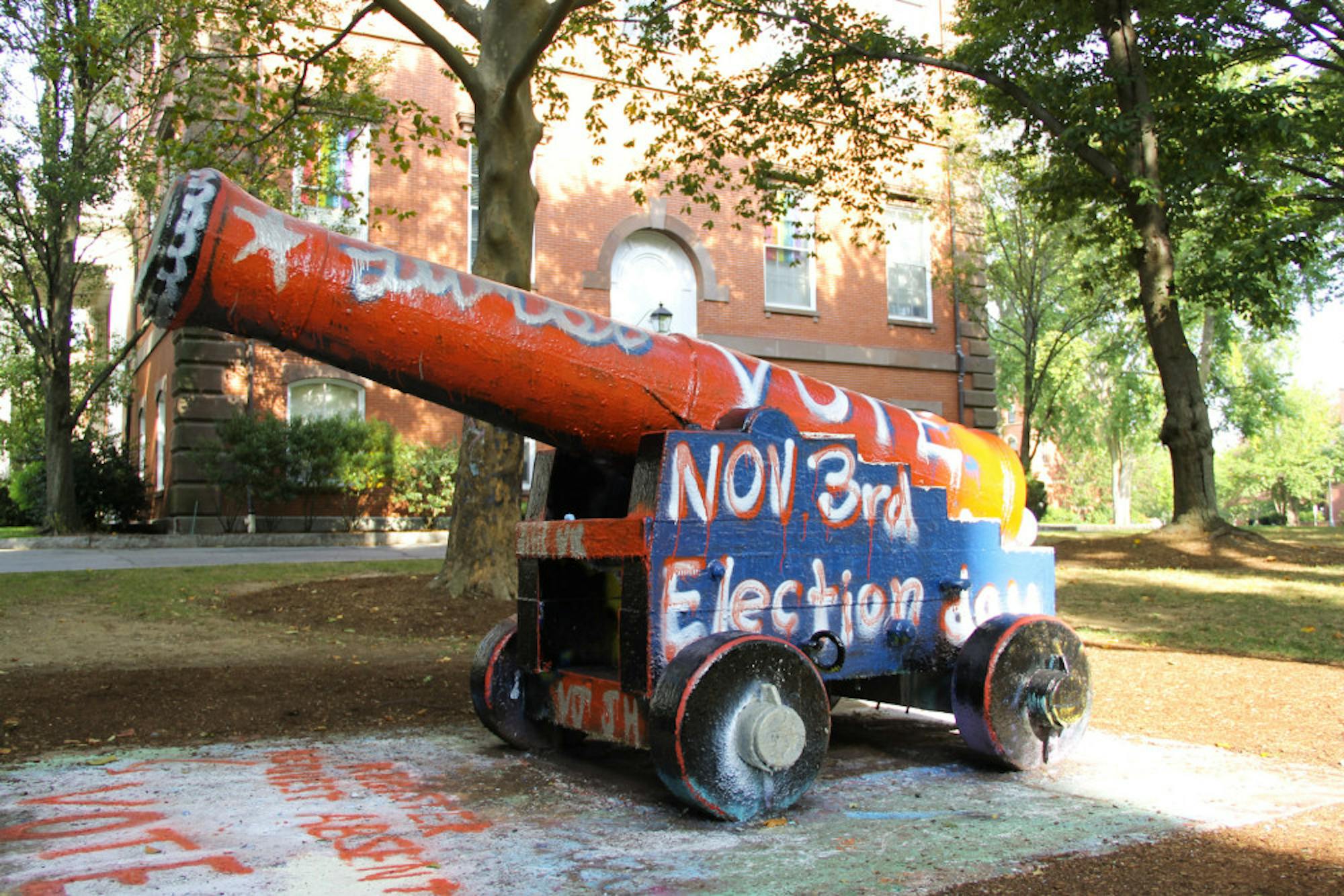Young people’s votes in key states across the nation helped President-elect Joe Biden’s campaign secure a winning majority this November. The Center of Information and Research on Civic Learning and Engagement shows an increase of almost 10% in youth turnout across the country. Young people — defined as those between 18–29 years old — made up 14%, 15% and 21% of the voting populations in Pennsylvania, Michigan and Georgia respectively, and their overwhelming support for Biden helped secure his victory by a razor-thin margin.
This newly engaged wave of young voters did not become invested in national politics overnight. Some young leaders have been inspired to do a lot more than cast their ballots. They have rolled up their sleeves and decided to take direct action.
Over the past few years, many local and national youth-led organizations have been working non-stop to build political power leading up to the election. The New Hampshire Youth Movement, which was founded soon after the 2016 presidential election, has been working with college campuses in New Hampshire to register students to vote while increasing awareness for issues that young people care about.
“A lot of ways that campaigns traditionally reach out to voters, like phone banking and canvassing, don’t necessarily reach students,” Ella McDonald, a regional organizer with the New Hampshire Youth Movement, and a junior at Tufts University, said.
“Students, or young people in general, are often registering to vote for the first time," McDonald said. "We’re moving a lot, we don’t have an address nailed down where campaigns can reach us, and that has resulted in students not being reached by traditional methods."
Unhindered by the lacking connection between young voters and traditional campaign messaging, McDonald and her friends began reaching out to young people in different ways.
“We went to college campuses to get students to pledge to vote,” she said. “When it was safe, we did some in-person, socially distant canvassing on campuses and organized relationally.”
The COVID-19 pandemic made it difficult for McDonald and her team to pursue in-person organizing. However, they found other methods of outreach to engage young voters.
“We got a list of every single community college [student] in NH and their phone numbers,” she said. “Only a third of them were registered to vote already, but we were able to deliver messaging that was real and resonated with a lot of young people,” McDonald said.
In the 2016 presidential election, Hilary Clinton won New Hampshire by less than 3000 votes. According to McDonald, this made the impact that New Hampshire Youth Movement organizers had on each young voter they registered that much more powerful.
New Hampshire Youth Movement, alongside many other locally-focused organizations across the country, is fueled by young people increasing their political engagement. Another youth-led organization making headlines for shaking the foundations of the political establishment this election cycle is the Sunrise Movement, which focuses their efforts at a national level.
While the central goal of the Sunrise Movement is to fight climate change and create millions of jobs in the process, the movement has recently focused on the 2020 presidential election. The Sunrise Movement organizes national sit-ins, rallies and protests to highlight the inequality exacerbated by the climate crisis. The movement also pressures politicians to pursue sustainable policies such as the Green New Deal.
“Sunrise’s theory of change calls for pressuring the system from the inside and outside,” Dan Zackin, a senior at Tufts University, said. Zackin helps recruit members for Sunrise Tufts. “That means electing Green New Deal champions who will advance our agenda on the floor of the statehouse and congress, and protesting to pressure politicians into passing legislation.”
In order to amplify youth voices across the country, Sunrise activists worked with both local candidates running for office and presidential candidates with progressive platforms to support their election to office.
“This election cycle we hosted and attended phone banks for down-ballot candidates in MA and around the country and showing up in solidarity with other movements for change,” Zackin said.
Earlier this year, Sunrise conducted an election poll with members to decide which presidential candidate they would endorse. “Agreement between Sunrisers is as close to unanimous as you can get,” Sara Singh, co-leader of the Sunrise Boston media team, said.
“76% of all Sunrisers around the United States said that they supported Bernie Sanders because his ideas were the boldest," she said. "So we endorsed him. And we made sure that the Green New Deal was included in national television debates. When Sanders later dropped out of the race, Sunrise shifted its focus to phone banking, sending mass texts and relational organizing to elect Joe Biden to office."
Working with Sunrise has inspired Singh to do even more than volunteer for Sunrise and vote for progressive candidates; it has inspired her to run for office.
“It was this frustration with short-term thinking at the highest levels of power that convinced me to run for office after grad school, to participate in policy design from a deep ecology perspective,” she said.
Zackin draws energy from the knowledge that his efforts with Sunrise Tufts are making a difference. “We saw our impact most in local elections like the MA democratic primary where our endorsed candidate Erika Uyterhoeven won her election,” Zackin said.
One thing is clear: young people are rising up. They are getting more involved with politics, starting with the higher voter turnout rates in this election and extending beyond that into a world of highly motivated students who are volunteering and organizing others to shift political will.






